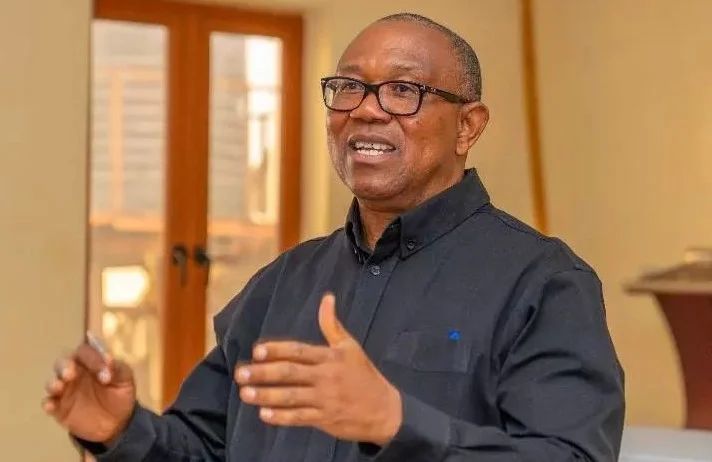By Chidi-Peters Okorie
Abuja, NIGERIA — As Nigeria gears up for the 2027 presidential election, strong indications suggest that Peter Obi, the former Labour Party presidential candidate, may be on the verge of leaving his current party to align with the Peoples Democratic Party (PDP). Despite his recent public reassurances, whispers of discontent and strategic maneuvering within and outside the Labour Party hint that his days in the party could be numbered.
In recent weeks, Obi has been actively engaging with stakeholders, holding numerous meetings to assess his political future. Reports indicate he has been conferring with major political leaders, particularly from the northern regions, who predominantly belong to rival parties. This outreach is seen as a calculated move to solidify support ahead of the upcoming elections.

A source within the PDP, who spoke on the condition of anonymity, revealed, “The PDP has been in turmoil even before the last general elections. Key members were opposed to a northern candidate following Buhari’s presidency, advocating for a Southern contender. However, Atiku Abubakar secured the ticket once again.”
This internal strife is compounded by concerns regarding Atiku’s viability as a candidate in 2027, given his age—he will be nearing 80 by election time. The source lamented, “Atiku’s track record is not favorable. Many in the party feel he may not be the right choice, yet he remains hesitant to relinquish his claim to the ticket.”
Atiku Abubakar, who has unsuccessfully run for president five times, has publicly stated his willingness to support Obi should the party decide to nominate him. In a recent interview with BBC Hausa, he said, “If the PDP decides to zone the presidential ticket to the South or specifically the South-East, I won’t contest. I will abide by the party’s decision.”
However, insiders are skeptical about Atiku stepping aside, suggesting he views himself as the party’s most experienced figure. “Atiku feels he’s bigger than anyone else in the party,” one insider noted, indicating a persistent belief among core PDP members that his presence complicates their path forward.
Despite ongoing meetings between Obi and Atiku, concrete agreements have yet to materialize. The political landscape remains fluid, with many anticipating significant realignment before the elections. Sources suggest that a key condition for Obi’s potential transition to the PDP could involve a commitment to serve a single term if elected.
The Labour Party is currently grappling with its own internal crises. Recent remarks by embattled party chairman Julius Abure have further fueled speculation about Obi’s future. Abure declared that the party’s presidential ticket is now open to all qualified members, undermining Obi’s previously perceived stronghold on the candidacy.
Many Nigerians have expressed concern over the ongoing turmoil within the Labour Party and are urging Obi to consider a return to the PDP, where he might have a clearer path to the presidency. Obi himself has acknowledged the distraction posed by the party’s crises, emphasizing a focus on broader national issues like employment, security, and infrastructure.
In his own words, Obi stated, “We are thinking about Nigeria. Our engagement is not solely about the Labour Party but about what we aim to achieve for the country. If we cannot change the Labour Party, we will not die with them.”
As the political landscape evolves, Peter Obi stands at a crossroads. With mounting pressure to abandon the Labour Party and align with the PDP, the coming months will be crucial in determining his political fate. Will he seize the opportunity to lead the PDP into the 2027 elections, or will he remain loyal to the Labour Party amidst growing challenges? Only time will tell.